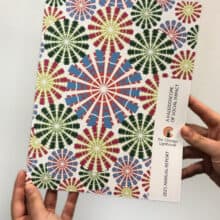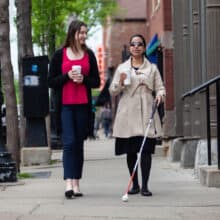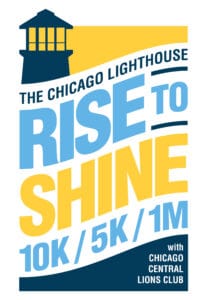How Can New Technology Help Those of Us Who Are Blind or Visually Impaired?
June 11, 2015
It was 7:30 p.m. on a chilly November evening. I was heading back to my college dorm after having dinner with some friends, when suddenly someone came up to me and asked “do you know who I am?” I immediately responded no; she seemed taken aback. After she told me her name, I realized I had met her not too long ago.
Lately I have seen many news stories about technology that might help people with disabilities be more independent. Perhaps one of the newer concepts is that of facial recognition technology. Although this concept has existed for many years, it wasn’t until very recently that it began to be applied to assisting people with disabilities, particularly those of us with visual impairments.
As a totally blind person, I can think about a few scenarios in which this technology might help me and countless others.
- Recognizing family, friends, coworkers, etc. in the street. This is probably the most obvious way the technology can help us! While many of us can recognize friends and family members by hearing their voices, this is not always the case. For example, if I haven’t spoken with someone in a long time, then I might not know who they are. With this technology I would no longer have to guess who’s talking to me and my acquaintances would not be disappointed if I didn’t recognize them immediately!
- Identifying someone from a distance. There are instances when I’m in a crowded room and want to get the attention of someone in particular. This can be hard, especially if there is a lot of noise or if the person is in a different part of the room. With this technology, it would be easier for me to identify and spot whoever and whenever I wanted or needed.
- Staying safe. Unfortunately, we are all vulnerable to crime. When someone has a severe visual impairment, it can be difficult to recognize people immediately. Going back to the story at the beginning of this post, I honestly wasn’t sure who the person that came up to me was. While she had the best of intentions, the fact that she snuck up on me in the late evening startled and made me feel uncomfortable. Facial recognition technology might allow me to feel more at ease when I’m out and about during the evening or night hours. If it couldn’t identify someone who was following me, for instance, I would probably be cautious about that individual’s intentions. It would also be nice if this technology could identify and alert us of dangerous criminals that were near our location.
These scenarios are all assuming that this type of technology is for the most part accurate. It is too soon to tell how reliable facial recognition technology will be, but I have no doubt that it has a lot of potential in assisting those of us with vision loss.
The Orcam is a newly developed device with facial recognition technology, among other features. Our friends from The Chicago Lighthouse Assistive Technology Center recently reviewed this product, and you can read their first impressions here. What are your thoughts about this or other future technologies? Please feel free to comment! You can email any questions about blindness or visual impairment to sandysview@chicagolighthouse.org. Thanks for reading!





